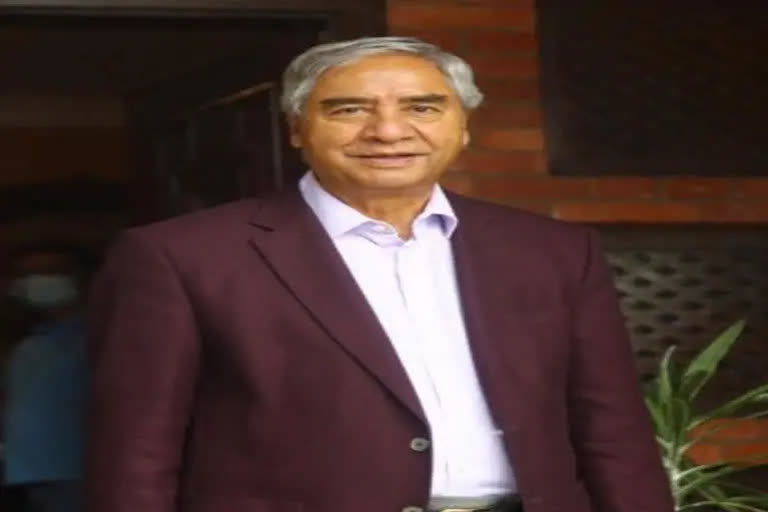New Delhi:Nepal Prime Minister Sher Bahadur Deuba is set to arrive in India on a three-day visit on April 1, aimed at inking cross-border connectivity and healthcare projects. Additionally, it has also been reported that Deuba and his Indian counterpart Narendra Modi are likely to inaugurate the Kurtha-Jayanagar Railway Project, a 35-km stretch that will link Kurtha in Nepal to Jayanagar in Bihar.
India and Nepal share a deep historical bilateral relationship which has continued to strengthen over time, given the high number of geopolitical and geoeconomic convergences between the two. The outstanding border issues between the neighbours are also likely to be discussed during Deuba's visit, thus opening doors for a productive dialogue on the same and contributing towards a rejuvenated relationship between New Delhi and Kathmandu.
As Nepal tries to vie for a policy of strategic diversification aimed at reducing external dependence, the visit has the potential to further strengthen the relations between the two neighbors, provide room for India to be the driver for Nepal's domestic growth and confront the existing issues of divergence. It will also boost Indian government's commitment to its Neighborhood First policy and secure a stable relationship with Nepal in an otherwise volatile environment in the region marred by the Russia-Ukraine crisis and Chinese aggression.
Boosting Connectivity: Building on the Janakpur Bond
As per reports, the key project that the two sides shall be inaugurating during Deuba's India visit is the Kurtha-Jayanagar railway project, part of the 68.72 km Jayanagar-Bijalpura-Bardibas rail link built under the aegis of the Indian government at a grant assistance cost of NPR 8.77 billion. With its inauguration, the railway project will establish the first modern railway network in Nepal and provide a much needed boost in bilateral trade, investment, people-to-people exchange, tourism and cultural diplomacy, and strengthening the overall connectivity between the two countries. Addressing the handing over ceremony of the railway link in 2021, the Nepalese Physical Infrastructure and Transport Minister had remarked that the project will bring modernisation in Nepal's railway system.
India and Nepal share a deep historical relationship that has widened over the years and the Kurtha-Jayanagar railway project builds on a major cultural and religious bond - the Janaki Mandir in Janakpur, Nepal. This temple, widely revered by Hindus for pilgrimage in countries like India, Nepal, Sri Lanka etc., will receive a huge tourism and financial impetus due to the inauguration of the railway link. The reason for its importance for Hindus across the world stems from the fact that Lord Ram's wife Sita was identified to be born in Janakpur, thus linking Ayodhya in India (Lord Ram's birthplace) and Janakpur in Nepal.
Thus, the Kurtha-Jayanagar railway link will serve as the new foundation for a renewed India-Nepal relationship that will extend to other areas as well. Testimony to this can be attached due to the fact that during Deuba's planned visit, other projects including, but not limited to launching of 137 health posts in the aftermath of 2015 Nepal Earthquake through Indian assistance, are also set to be launched that will further enhance the bilateral relationship. In this regard, India and Nepal have done well to rejuvenate and reboot their relationship in the last one year through various measures, thus sowing the seeds for a productive visit by Deuba. In 2021, India had gifted Nepal one million domestically manufactured Covishield vaccines to contain the spread of coronavirus.
New Delhi also provided grant assistance of Rs 30 crore (approx.) to Nepal for the reconstruction of educational institutions rocked by the 2015 earthquake. In a goodwill gesture, the Indian government conferred General Prabhu Ram Sharma of Nepal with the rank of ‘General of Indian Army' during his visit to India in 2021. Also, at the end of 2021, Indian Foreign Minister had announced the completion of construction of 50,000 houses that had been earlier destroyed in the wake of the 2015 earthquake in Nepal.
